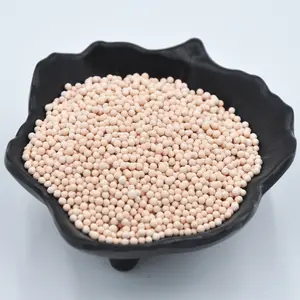Understanding Polymerization Catalysts
Polymerization catalysts are pivotal in the field of industrial chemistry, serving as agents that accelerate chemical reactions. These substances are crucial for transforming simple chemical compounds into complex polymers. Unlike reactants, polymerization catalysts are not consumed in the reaction, allowing for their recovery and reuse, which underscores their efficiency and sustainability in chemical processes.
Types of Polymerization Catalysts
Among the diverse types of catalysts, Ziegler-Natta catalysts are renowned for their role in polymerization of olefins, including ethylene and propylene, which are essential in producing polyethylene and polypropylene. Similarly, metallocene catalysts have gained prominence in metallocene polymerization, offering precise control over the polymer structure. Coordination polymerization using Ziegler-Natta catalysts is another significant method, especially in the synthesis of high-density polyethylene (HDPE) and polypropylene.
Applications of Polymerization Catalysts
The application of polymerization catalysts extends across various industries. For instance, the catalyst used in polymerization of ethylene is integral to manufacturing HDPE, while polypropylene Ziegler-Natta catalysts are essential in producing robust polypropylene plastics. These catalysts also play a role in enhancing the efficiency of batteries and contributing to the cost-effectiveness of biogas production by facilitating the disintegration of cellulose.
Features and Advantages
A key feature of an effective polymerization catalyst is its ability to remain unchanged in mass and chemical composition post-reaction. It should not alter the equilibrium position of the reaction, nor should it be consumed or initiate the reaction independently. Even in small quantities, a potent catalyst like the Brookhart catalyst can drive a reaction to completion. The use of such catalysts makes industrial processes more eco-friendly by reducing energy requirements and waste production.
Materials and Sustainability
Materials used in the creation of polymerization catalysts, such as polymer supported catalysts, are chosen for their stability and reactivity. The development of these catalysts is geared towards enhancing the sustainability of chemical processes, minimizing environmental impact, and promoting the use of renewable resources.
Choosing the Right Catalyst
Selecting the appropriate catalyst used in polymerization is critical for achieving desired outcomes in industrial processes. Factors such as reaction conditions, polymer type, and desired properties of the final product must be considered. While Alibaba.com does not manufacture these catalysts, the platform offers a vast selection from various suppliers, enabling buyers to find the catalyst that meets their specific industrial needs.








































 浙公网安备 33010002000092号
浙公网安备 33010002000092号 浙B2-20120091-4
浙B2-20120091-4